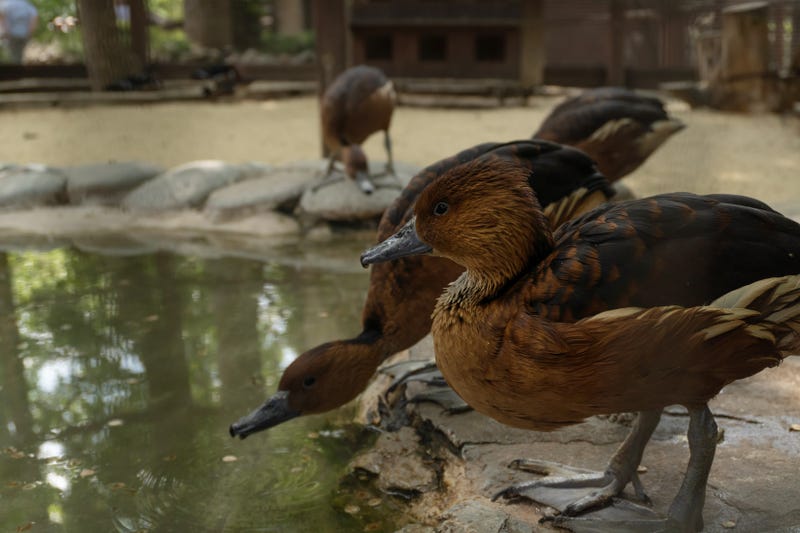
NEW YORK (1010 WINS) — As many as 15 birds across multiple species at the Queens and Bronx zoos were killed by bird flu, revealing more about the virus that shut down live bird markets across New York City and its suburbs on Friday.
Three hooded merganser ducks died at the Queens Zoo due to avian flu, according to a Wildlife Conservation Society spokesperson. Nine wild birds and three “collection ducks” that may have been exposed to the virus died at the Bronx Zoo, but lab tests on the deaths are pending.
As a precaution, zoo officials have moved more vulnerable species to protected areas of their parks over the last two weeks, the Wildlife Conservation Society said.
“We implemented steps at our four zoos and aquarium to limit exposure of our animals to wild birds, mainly species of waterfowl, known to be significant carriers of avian influenza,” the spokesperson said.
Curators and veterinarians are collaborating with city, state and federal agencies as they monitor the situation in the region.
The Wildlife Conservation Society said that the zoos are remaining open as there is “little” chance of humans coming into contact with the birds or contracting the virus.
The spike in infections also killed a Bronx Zoo red tailed hawk and a Queens Zoo great horned owl, according to records from the Department of Environmental Conservation obtained by Gothamist.
Avian flu has been wreaking havoc on poultry markets in the region, and Gov. Kathy Hochul confirmed on Friday that seven cases of the virus were found during live inspections at live bird marts in the Bronx, Brooklyn and Queens this week.
The governor said that New York state has shut down all live bird marts across the city, as well as on Long Island and in Westchester, through next Friday. This shutters about 80 facilities across eight counties for at least a week.
Those that have positive cases are required to dispose of all poultry in a sanitary manner, but the others have to sell off their remaining poultry by the end of the weekend before cleaning and disinfecting. After five days, their facilities must be inspected by state officials before reopening.
Hochul has said that “there is no immediate public health threat,” but that state health officials have ample testing capacity for humans if necessary.
Bird flu has led to the recent slaughter of millions of birds across the country in an attempt to prevent the spread of infection, driving up the cost of eggs nationwide.
